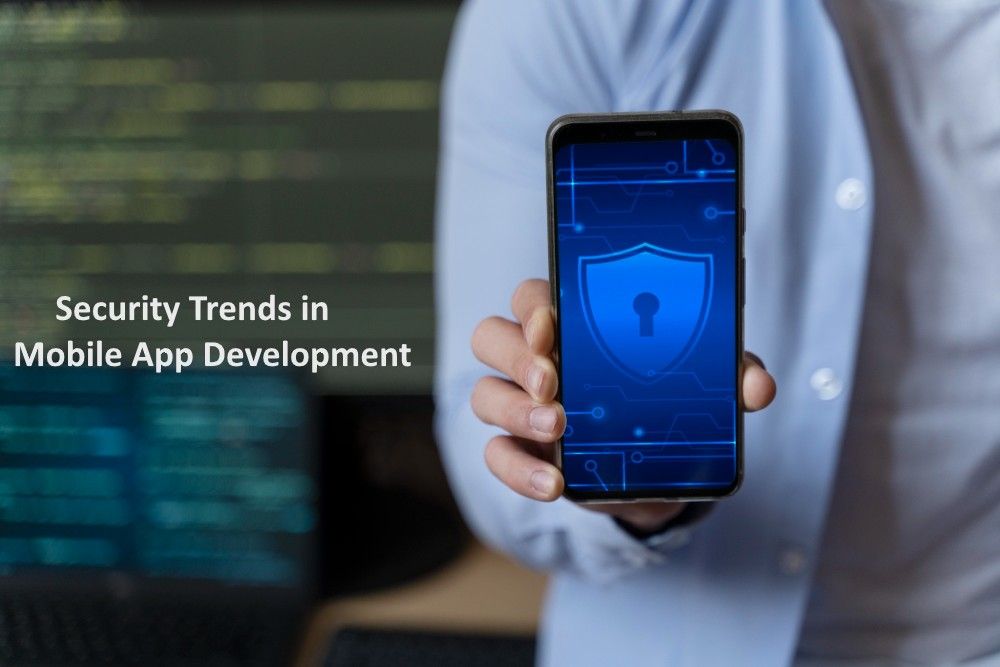
In an era dominated by mobile applications, ensuring the security of user data has become paramount. With the increasing frequency of cyber threats, developers must stay ahead of the curve in adopting the latest security trends.
Current State of Mobile App Security
Mobile app developers face a myriad of security challenges, ranging from data breaches to financial losses. The repercussions of a security breach extend beyond the immediate financial impact, often damaging a company’s reputation in the long run.
- Sophisticated phishing attacks and social engineering techniques are becoming more prevalent, targeting both users and developers.
- Zero-day vulnerabilities pose a significant threat, emphasizing the need for prompt security patching and updates.
Emerging Threats in Mobile App Development
As technology advances, so do the tactics of malicious actors. Mobile malware, ransomware, and social engineering attacks are on the rise, emphasizing the need for developers to be vigilant and proactive in their security measures.
- Increased targeting of mobile devices in supply chain attacks is a rising concern, requiring a comprehensive approach to app security.
- App store infiltrations and the distribution of counterfeit apps underscore the importance of robust app vetting processes.
Security by Design: Best Practices
The concept of “security by design” emphasizes integrating security into every phase of the development lifecycle. Secure coding practices, robust data encryption, and ensuring secure communication are fundamental steps in fortifying mobile apps against threats.
- Regular security training for developers ensures a strong awareness of security best practices throughout the development process.
- Implementing a secure DevOps culture facilitates continuous integration and deployment while maintaining a focus on security.
Biometric Authentication and Advanced Access Controls
Biometric authentication is gaining prominence as a secure method for user identification. Implementing advanced access controls, such as multi-factor authentication, adds an extra layer of defense against unauthorized access.
- Continuous monitoring of biometric data storage and processing is crucial to prevent potential privacy breaches.
- Adaptive access controls that dynamically adjust based on user behavior enhance the effectiveness of security measures.
Mobile App Permissions: Balancing User Experience and Security
Managing app permissions is a delicate balance between providing a seamless user experience and safeguarding user data. Developers should adopt transparent practices, clearly explaining the necessity of each permission request.
- Implementing granular permission requests allows users to make informed decisions about the data they share.
- Regularly reviewing and updating app permissions based on user feedback and changing security landscapes enhances overall security.
Mobile App Security Testing
Regular and thorough security testing is crucial for identifying vulnerabilities in a mobile app. Techniques like penetration testing and code reviews help developers detect and rectify potential security issues before they can be exploited.
- Automated security testing tools streamline the detection of common vulnerabilities, speeding up the development process.
- Collaborative security testing, involving both developers and dedicated security professionals, ensures a comprehensive assessment of app security.
Blockchain Technology for Mobile App Security
Blockchain technology is being harnessed to enhance the security of mobile applications. Its decentralized nature and cryptographic principles make it an attractive option for securing sensitive data and transactions within mobile apps.
- Smart contracts on blockchain platforms provide an additional layer of security, automating and enforcing secure transaction processes.
- Incorporating blockchain-based identity management enhances user authentication and reduces the risk of identity theft.
Secure Cloud Integration in Mobile Apps
As the reliance on cloud services grows, securing data in transit and at rest becomes imperative. Developers must implement best practices for secure cloud integration to protect user data from potential breaches.
- Implementing end-to-end encryption for data transmitted to and from the cloud ensures data privacy and integrity.
- Regularly auditing and monitoring cloud services for security vulnerabilities mitigates the risks associated with cloud integration.
Compliance with Data Protection Regulations
Data protection regulations, such as GDPR and CCPA, have a direct impact on mobile app development. Ensuring compliance not only safeguards user data but also builds trust and credibility with app users.
- Regularly updating privacy policies and terms of service to align with evolving regulations maintains transparency and compliance.
- Conducting periodic internal audits ensures ongoing adherence to data protection regulations and industry standards.
Future Trends in Mobile App Security
The future of mobile app security holds exciting possibilities. Anticipated trends include the integration of artificial intelligence, machine learning, and quantum-resistant cryptography to bolster the resilience of mobile apps against evolving threats.
- AI-driven threat detection systems offer real-time analysis, identifying anomalies and potential security breaches.
- Quantum-resistant cryptography addresses the emerging threat posed by quantum computers to traditional encryption methods.
Conclusion
In a rapidly evolving digital landscape, the security of mobile apps is a continuous journey. By staying informed about emerging threats and adopting robust security practices, developers can safeguard user data and contribute to building a more secure mobile ecosystem.
For businesses seeking to launch or upgrade their mobile applications, partnering with a reputable mobile app development company is paramount. These companies specialize in navigating the complex landscape of app security, employing seasoned professionals who understand the intricacies of secure coding, encryption, and comprehensive testing.
Choosing the right mobile app development company ensures not only a feature-rich and user-friendly application but also one fortified against potential security vulnerabilities. Look for a company that prioritizes “security by design” principles, incorporates the latest authentication technologies, and follows compliance with data protection regulations.
Author Bio:
Bimal Patel is the CEO and Founder of Myra Technolabs, a steadily growing Top Web and Mobile Development company. It works with the single motto of helping clients build successful businesses in their domain. He believes in creating happy clients and for the same, he invests his full potential in every client’s work.